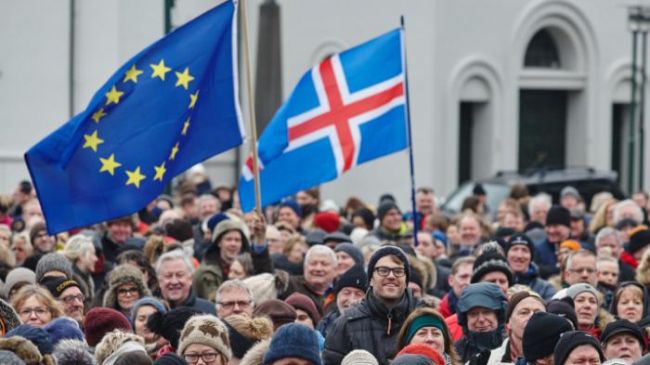More than 10000 Icelanders Ready to Welcome Syrians
Icelandic author and professor, Bryndis Bjorgvinsdottir, urged her fellow Icelanders to speak out on the social media platform if they wanted Iceland to take in more Syrian refugees.
Bjorgvinsdottir’s effort has inspired a similar Facebook Page in the US that encouraged Americans to welcome people displaced by the violence in Syria into their homes.
Around 12,000 people from a population of little over 300,000 joined the Facebook page.
The Iceland Review Online translated a few of the posts made by people offering up their homes: “I’m happy to look after children, take them to kindergarten, school and wherever they need”.
“Refugees are our future spouses, best friends, our next soul mate, the drummer in our children’s band, our next colleague, Miss Iceland 2022, the carpenter who finally fixes our bathroom, the chef in the cafeteria, the fireman, the hacker and the television host”, she wrote on the page. “I can contribute with my expertise and assist pregnant women with pre-natal care”.
Posting in broken English, one man said he had “escaped Syria” and “had a passport” but now had nowhere to stay.
But the Facebook page mentions an incident in 1973 when mainland Iceland absorbed 4,000 people from the tiny Westman Islands close by after a sudden eruption from Eldfell volcano.
It appears Welfare Minister, Eyglo Hardardottir, heard the offers on Facebook and the government is now looking into increasing its refugee quota, The Telegraph reports.
“I think we can add (to the numbers) but I can’t and don’t want to name a figure”, Icelandic Foreign Minister Gunnar Bragi Sveinsson told public broadcaster RUV.
And in Germany, a website has been running for months which aims to match offers of accommodation in private homes – ideally shared rental apartments – across the country with individual refugees in need of a place to stay.
Ms Bjorgvinsdottir said she knew someone who could house five Syrians fleeing the country’s brutal civil war, requesting work permits, residents papers and “basic human rights” in exchange for paying for their flight and helping them integrate into national society.








